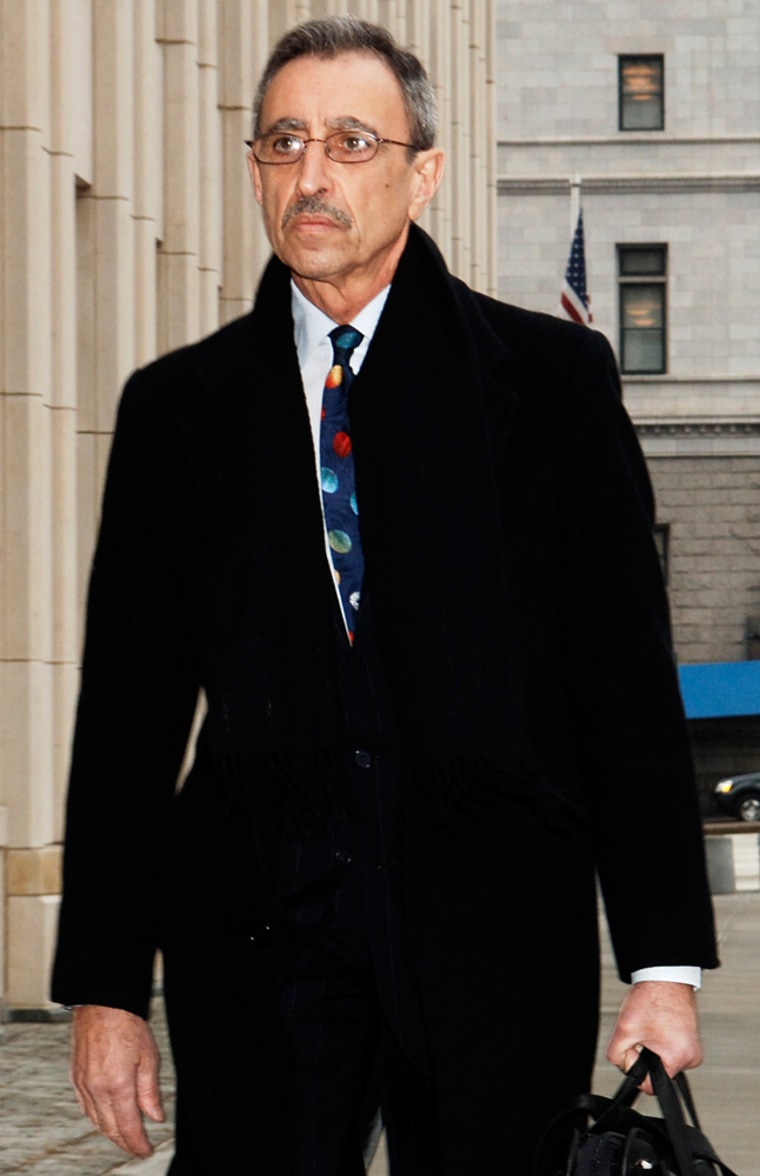A judge told two decorated former detectives Monday that they will get life in prison for moonlighting as hitmen for the mob.
But U.S. District Judge Jack B. Weinstein said he would not formally impose the maximum sentence on Louis Eppolito and Stephen Caracappa until at least June 23. At that time, the defendants will argue they were not adequately represented by their lawyers at their trial.
“This is probably the most heinous series of crimes ever tried in this courthouse,” the judge said.
The two former partners were convicted in April of participating in eight slayings between 1986 and 1990 while simultaneously on the payroll of the New York Police Department and the Luchese crime family.
Prosecutors said the detectives committed some of the murders themselves, and delivered up other victims to the Mafia to be killed.
Eppolito, 57, and Caracappa, 64, received $4,000 a month from Luchese underboss Anthony “Gaspipe” Casso, who also used them to get inside information on law enforcement investigations. Their pay went up for the murders: They earned $65,000 for one killing.
‘You killed a family’
Federal prosecutor Daniel Wenner had described the case as “the bloodiest, most violent betrayal of the badge this city has ever seen.”
Five victims’ family members took the witness stand to testify how the murders linked to the two detectives had destroyed their lives.
“You did not kill one person,” said Michal Greenwald Weinstein, whose father was the pair’s first victim. “You killed a family.”
Another man, wrongly jailed for 19 years in a case investigated by Eppolito, was thrown out of court after launching into a rant against him.
Eppolito, speaking for the first time in court, insisted he was innocent and encouraged the family members who called for his incarceration to visit him in prison. “I can hold my head up high,” said Eppolito, whose father was a member of the Gambino crime family. “I never did any of these things.”
Bruce Cutler, who represented Eppolito, was out of his office and unavailable for comment Monday. Hayes was in Los Angeles and did not return a call left at his Manhattan office.
Both defendants have been jailed since their April 6 convictions on racketeering charges that included murder, kidnapping, drug dealing and obstruction of justice.
‘You framed me!’
During Eppolito’s remarks, Barry Gibbs, who was imprisoned for almost 20 years after a wrongful conviction in a case where Eppolito was lead investigator, lashed out at the former detective before federal marshals led him out of the courtroom.
“Remember what you did to me? To me? You framed me!” he screamed as the crowd burst into cheers.
Caracappa, who retired in 1992, helped establish the police department’s unit for Mafia murder investigations. Eppolito was a much-praised street officer despite whispers that some of his arrests came via tips from mobsters.
Eppolito also played a bit part in the mob movie “Goodfellas.” After retiring in 1990, he unsuccessfully tried his hand at Hollywood scriptwriting.
In his autobiography, “Mafia Cop,” he portrayed himself as an honest officer from a crooked family. The pair, both highly decorated, spent a combined 44 years on the force and eventually retired to homes on the same block in Las Vegas.
The racketeering convictions also could be overturned due to the statute of limitations. The defense argued that there was no ongoing criminal enterprise while the detectives were living in Las Vegas, making a racketeering charge legally untenable.
